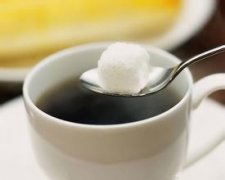Drinking more coffee is easy to lose nutrients. Coffee can increase estrogen levels.

Many women regard coffee as a refreshing and refreshing helper, but did you know that coffee not only increases your body's estrogen levels, but also causes nutrient loss due to diuretic effects.
Coffee can raise estrogen levels.
Fan Zhihong, an associate professor in the Department of Nutrition and Food Safety at the School of Food at China Agricultural University, pointed out that studies have shown that coffee has a strong effect on increasing estrogen. Women who drink 4-5 small cups of coffee a day will consume more than 500 milligrams of caffeine. Their estradiol levels rise by as much as 70% during the follicular phase of the menstrual cycle (1-5 days after the onset of menstruation), when high levels of estrogen are particularly dangerous. Studies have found that drinking just two cups of coffee from a small coffee cup can significantly increase estrogen levels. The more you drink, the higher the level of estrogen.
Many women know that high levels of estrogen increase the risk of breast and endometrial cancer, as well as endometriosis and breast pain. Therefore, women with these troubles should drink less coffee. Women with a family history of breast and ovarian cancer should be extra careful and pay more attention to controlling their estrogen levels.
Coffee can easily cause osteoporosis.
Fan Zhihong also warned that caffeine itself does not affect the body's absorption of nutrients, but it has a strong diuretic effect. Therefore, after drinking coffee, the urine volume of drinkers will increase significantly, so potassium, magnesium, vitamin B and other important nutrients will be lost as the urine flows out of the body.
At the same time, caffeine effectively promotes urinary calcium excretion, disrupting the body's calcium balance, and the body has to use bone calcium, which will lead to osteoporosis over a long period of time. Experts stress that for Chinese people who already have insufficient calcium intake, the impact can not be ignored.
Women who are prone to cramps and edema, as well as women with dark skin, dark circles and excessive oil secretion, should strictly control the amount of coffee they drink, as the loss of minerals and vitamins can aggravate these symptoms.
Coffee harms the health of fetuses and babies
Coffee can cross the placental barrier and enter the milk. This means that it can be passed from mother to fetus through the umbilical cord or from mother to baby through breast milk.
So experts warn that pregnant women should never drink coffee because it increases the rate of natural abortion in the 4th to 6th months of pregnancy and increases the risk of giving birth to low birth weight babies. The fetus has little ability to detoxify, so drinking coffee from a pregnant woman has a greater impact on the cardiovascular and neurobehavioral aspects of the fetus than on the mother.
Babies are much less capable of detoxification than adults, so they are very sensitive to caffeine. High doses of caffeine may reduce the weight of the baby's brain, reduce learning and memory, and have a lifelong effect on IQ. Some mothers and children are particularly sensitive to caffeine and the damage is even greater. Therefore, nursing mothers had better not drink coffee.
Gradually reduce coffee consumption
In addition to coffee, tea, cola, chocolate, refreshing drinks also contain caffeine, the total caffeine intake of these foods should not be ignored. Each small cup of instant coffee contains about 75 milligrams of caffeine, a pick-me-up drink can contain more than 80 milligrams, and a can of Coke or a medium-sized chocolate contains about 40 milligrams.
Experts also warn that coffee cultivation uses a large number of pesticides, and there may be more pesticide residues in its beans.
So experts suggest that if there are already signs of coffee addiction, abruptly stopping drinking coffee may cause withdrawal symptoms, such as severe headaches. It is recommended to gradually reduce the consumption to 1-2 cups a day. Women who can't quit coffee might as well drink decaf coffee. When drinking coffee, try to avoid adding sugar and coffee companions, as they will increase calorie intake. If you have already drunk coffee, you should reject cola and refreshing drinks and avoid consuming too much caffeine.
Author: Xia Wen Source: Beijing Times
Important Notice :
前街咖啡 FrontStreet Coffee has moved to new addredd:
FrontStreet Coffee Address: 315,Donghua East Road,GuangZhou
Tel:020 38364473
- Prev

Urticaria from caffeine allergy itches only for 24 hours at a time.
Eating this is also itchy, eating that is also itchy, urticaria is not a serious disease, itching is fatal! In particular, the root cause of the disease is difficult to find. some people itch all over their bodies as soon as they touch cat hair, and some people bask in the sun with "red bean ice" swelling rash. Taipei Shutian Clinic recently treated a very rare case. A young man had chronic urticaria for half a year. Strangely, each attack lasted only one day, one by one.
- Next

Brain regions related to common sense addiction in boutique coffee have been identified
Neuroscientists at the University of California, Berkeley have now identified the exact location of the brain that causes addiction and obsessive-compulsive behavior. They found that the orbitofrontal cortex and the anterior cingulate cortex in the brain are responsible for mediating our choices. Despite the dangers of drug, alcohol, smoking, gluttony, gambling and theft, what drives some people to keep doing these things? University of California, USA
Related
- Beginners will see the "Coffee pull flower" guide!
- What is the difference between ice blog purified milk and ordinary milk coffee?
- Why is the Philippines the largest producer of crops in Liberia?
- For coffee extraction, should the fine powder be retained?
- How does extracted espresso fill pressed powder? How much strength does it take to press the powder?
- How to make jasmine cold extract coffee? Is the jasmine + latte good?
- Will this little toy really make the coffee taste better? How does Lily Drip affect coffee extraction?
- Will the action of slapping the filter cup also affect coffee extraction?
- What's the difference between powder-to-water ratio and powder-to-liquid ratio?
- What is the Ethiopian local species? What does it have to do with Heirloom native species?

